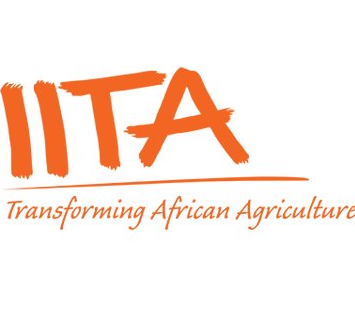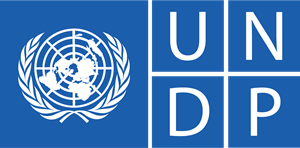Duties and Responsibilities
ORGANIZATION SETTING The United Nations Environment Programme (UNEP) is the United Nations systems designated entity for addressing environmental issues at the global and regional level. Its mandate is to coordinate the development of environmental policy consensus by keeping the global environment under review and bringing emerging issues to the attention of governments and the international community for action. This consultancy is located at the Headquarters in the Evaluation Office, which reports directly to the Executive Director. The consultant reports to the Evaluation Manager and the Director of the Evaluation Office. THE PROJECT Informed decision- and policy-making on today’s key environmental matters at regional, national and local scales should be based on the sound scientific assessment of the state of the environment, in conjunction with the driving forces, trends in pressures and their environmental impact, while providing policy response options and solutions for governments and other stakeholders. However, governments and principal stakeholders often still lack adequate capacity and robust knowledge in the fields of data collection, information, analysis, scientific assessments, and science-based policy options. Often, the lack of access to sound scientific data, clear information and robust knowledge continues to hamper decision-making by policymakers and relevant stakeholders. The UNEP project “Assessing key environmental issues and providing focused outlooks to strengthen science-based policy and decision making (SMA 45773 & 180471)” is meant to tackle this challenge for a set of specific and selected environmental themes as requested by governments and stakeholders during the past few years. The expected outcomes under UNEP Medium Term Strategies from 2018 – 2025 are that (a): Governments and other stakeholders use quality open-access environmental data, analyses and participatory processes that strengthen the science-policy interface to generate evidence-based environmental assessments, identify emerging issues and foster policy action. Additionally, the project was expected to contribute to Expected Accomplishments of other Sub-Programmes, including Sub-Programme 2 (Resilience to Disasters and Conflicts), Sub-Programme 3 (Healthy and Productive Ecosystems) and Sub-Programme 6 (Resource Efficiency) and (b): to empower Governments and other stakeholders to tackle environmental issues and identify emerging issues through the use of environmental assessments based on high-quality open-access environmental information and knowledge, and analysed data for informed policies, practices, solutions, and actions. The project was also expected to contribute towards the achievement of outcomes in three other subprogrammes, Climate Action Subprogramme, Nature Action Subprogramme, Chemicals and Pollution Action Subprogramme. THE EVALUATION In line with the UNEP Evaluation Policy and the UNEP Programme and Project Management Manual, the Terminal Evaluation is undertaken at operational completion of the project to assess project performance (in terms of relevance, effectiveness and efficiency), and determine outcomes and impacts (actual and potential) stemming from the project, including their sustainability. The Evaluation has two primary purposes: (i) to provide evidence of results to meet accountability requirements, and (ii) to promote operational improvement, learning and knowledge sharing through results and lessons learned among UNEP and the main project partners. Therefore, the Evaluation will identify lessons of operational relevance for future project formulation and implementation, especially where a second phase of the project is being considered. Recommendations relevant to the whole house may also be identified during the evaluation process. THE EVALUATION TEAM For this Evaluation, the Evaluation Team will consist of an Evaluation Consultant who will work under the overall responsibility of the Evaluation Office represented by an Evaluation Manager, in consultation with the UNEP Task Manager, Fund Management Officer and the Subprogramme Coordinator. Specific responsibilities for the Evaluation Consultant: In close consultation with the Evaluation Manager, the Evaluation Consultant will be responsible for the overall management of the Evaluation and timely provision of its outputs, data collection and analysis and report-writing. More specifically: 1. Inception phase of the Evaluation, including: • preliminary desk review and introductory interviews with project staff; • draft the reconstructed Theory of Change of the project; • prepare the evaluation framework; • develop the desk review and interview protocols; • draft the survey protocols (if relevant); • develop and present criteria for country and/or site selection for the evaluation mission ; • plan the evaluation schedule; • prepare the Inception Report, incorporating comments until approved by the Evaluation Manager. 2. Data collection and analysis phase of the Evaluation, including: • conduct further desk review and in-depth interviews with project implementing and executing agencies, project partners, and project stakeholders, • (where appropriate and agreed) conduct an evaluation mission(s) to selected countries, visit the project locations, interview project partners and stakeholders, including a good • representation of local communities. Ensure the independence of the Evaluation and the confidentiality of evaluation interviews; • regularly report back to the Evaluation Manager on progress and inform of any possible problems or issues encountered and; • keep the Project/Task Manager informed of the evaluation progress. 3. Reporting phase, including: • draft the Main Evaluation Report and a case study (max. 15 pages), ensuring that the evaluation report is complete, coherent and consistent with the Evaluation Manager guidelines both in substance and style; • liaise with the Evaluation Manager on comments received and finalize the Main Evaluation Report, ensuring that comments are taken into account until approved by the Evaluation Manager; • prepare a Response to Comments annex for the main report, listing those comments not accepted by the Evaluation Consultant and indicating the reason for the rejection; and; • (where agreed with the Evaluation Manager) prepare an Evaluation Brief (2-page summary of the evaluand and the key evaluation findings and lessons). 4. Managing relations, including: • maintain a positive relationship with evaluation stakeholders, ensuring that the evaluation process is as participatory as possible but at the same time maintains its independence; • communicate in a timely manner with the Evaluation Manager on any issues requiring attention and intervention. The Evaluation Consultant shall have had no prior involvement in the formulation or implementation of the project and will be independent from the participating institutions. The consultant will sign the Evaluation Consultant Code of Conduct Agreement Form. The Evaluation Consultant will be selected and recruited by the UNEP Evaluation Office through an individual consultancy contract. Comprehensive terms of reference will be shared with the consultant separately.
Qualifications/special skills
A first level university degree (Bachelor's degree or equivalent) in environmental sciences, international development or other relevant political or social sciences area is required. An advanced degree (Master's degree or equivalent) in the same areas is desirable. The years of experience are reduced by 2 for candidates who possess a master's degree in the related field. A minimum of ten (10) years of technical and/or evaluation experience preferably including experience in evaluating large regional or global programmes, or complex multi-year projects /programmes involving multiple donors, stakeholders, and components, and applying approaches such as Theory of Change and outcome harvesting is required. A good/broad understanding of knowledge management, global forums, environmental issues, science-based assessments/reports is desirable. Knowledge of the UN system and specifically the work of UNEP is desirable.




